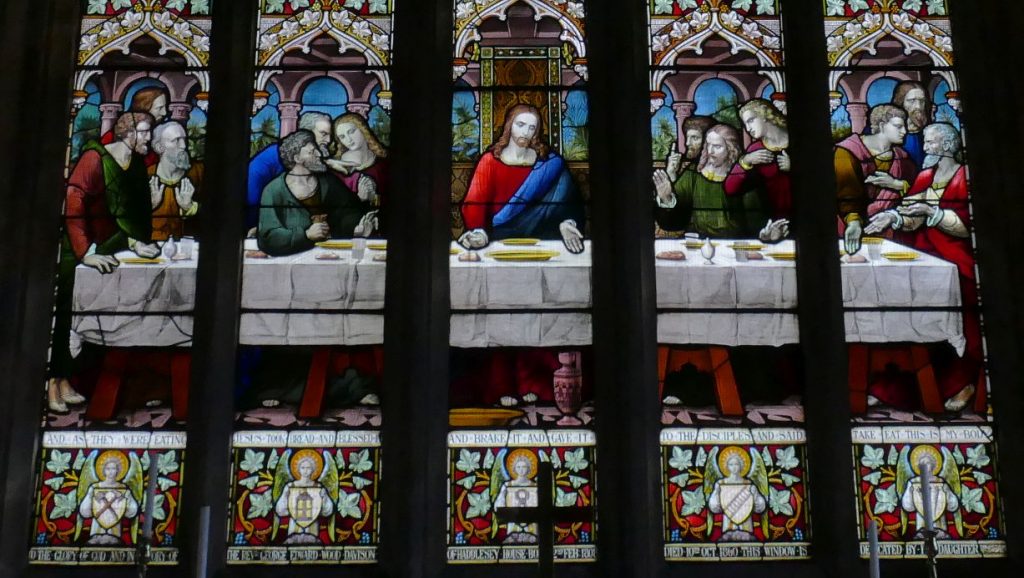
Copyright Diocese of Leeds.
Today’s song from Sing Praise is ‘Prepare a room for me, your Saviour’ by Herman G Stümpfler Jr. It takes the form of a dialogue between Jesus and his disciples in the alternating verses (six in all). It’s suggested that a choir sing the part of Jesus (or it could just be a soloist) and the congregation take the part of the disciples. In the hymn book the tune for both is the same, though I note that John wrote a new setting for morning prayer with the two parts having different tunes.
The first two verses could be seen as being specifically about the Last Supper, referred to here as the ‘feast’ (possibly the Passover itself, although some scholars think the last supper, apparently celebrated without women or children, was some other form of fellowship meal). Jesus asks his disciples to prepare a room to celebrate the feast; they respond by doing as he says and awaiting his presence.
The remainder of the hymn refers, rather, to the commemoration or re-enactment of the Last Supper (depending on your theological stance) in the sacrament of Holy Communion. Jesus promises that he will be present, though unseen, where two or three of his disciples meet to share the meal in his memory; the disciples respond that we “seek the food your grace alone can give”. Jesus promises in return that our hunger will be fed as he offers himself as the Living Bread. Finally we praise him that “through this loaf and cup you share your love that has no end”.
The whole does probably work better when sung as intended, i.e. as a responsorial hymn with several people singing as “the disciples”, than when used in personal prayer.